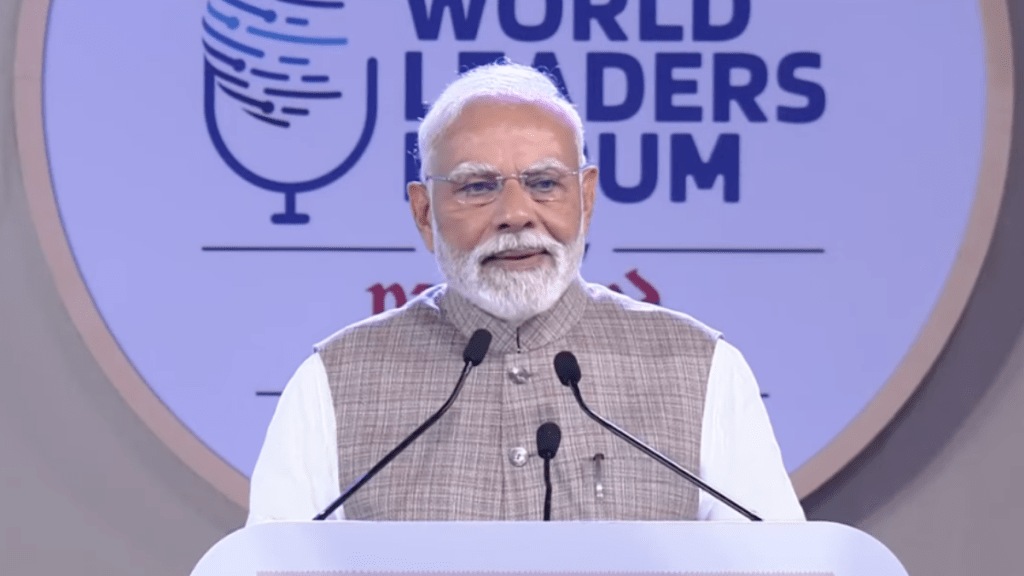Prime Minister Narendra Modi, at an event on Saturday, said that India is not aiming for incremental changes but for quantum jumps, adding that this would be guided by the mantra of “reform, perform, and transform”. He added that India is in a position to help lift the world out of slow growth, highlighting that we are the “fastest-growing” economy in the world.
‘India to become a developed nation by 2047’
“India is poised to become the third-largest economy globally,” he said at The Economic Times World Leaders Forum. At present, India is the fourth-largest economy in the world by nominal GDP and is “fully committed” to becoming a developed nation by 2047.
PM Modi added, “India, guided by the mantra of Reform, Perform, and Transform, is now in a position to help the world break free from the grip of slow growth.”
He also revealed that more jobs were created, adding that 22 lakh formal jobs were added to the EPFO database in June 2025. This, he said, was the highest ever for a given month. India’s retail inflation is at its lowest level since 2017, and foreign exchange reserves have reached an all-time high.
“India, through its resilience and strength, continues to be a source of global confidence,” he said.
He further said that in eleven years of his government, the country has completed over sixty space missions. “ In 2014, India had only one space start-up, whereas today there are over 300,” adding that the day is not far when India will have its own space station in orbit.
‘No incremental changes, time for quantum jumps’
“India is not aiming for incremental change, but is moving forward with the goal of achieving quantum jumps,” he emphasised, and stressed that reforms in India are neither driven by compulsion nor by crisis.
He also mentioned that the recently-concluded Parliament’s Monsoon Session was marred by protests from the Opposition MPs; however, the government remained committed to “advancing reforms”. He also highlighted that the Income Tax law, which was difficult for people to understand, has now been simplified after 60 years. “Now, the Income Tax Bill has been drafted in a language accessible to the common taxpayer. Earlier, only lawyers or chartered accountants could understand it properly. This reflects the government’s deep sensitivity towards the interests of citizens.”
He added that major reform is being undertaken in the GST framework, for which GoM has accepted the proposal to move to 5% and 18% GST rates, and that it would be completed by Diwali. This, he said, will not only simplify GST and be in line with the ease of doing business, but the rates will also come down.
He also mentioned the amendments that were made to the laws, including mining, and that a new Sports Bill was cleared by both Houses.
“It is not in my nature to be satisfied with goals already achieved. The same approach applies to reforms, and the government is determined to move further ahead,” the Prime Minister expressed.
He went on to say, “Atmanirbhar Bharat must be assessed on three key parameters: speed, scale, and scope.” Emphasising this in the energy sector, he said that India has already completed its target to generate 50 per cent of its total power capacity from non-fossil fuels by 2030.
The Prime Minister also underscored the nation’s “One Nation, One Subscription” initiative, which has made global research journals more accessible to students. A National Research Foundation has been created with a budget of Rs 50,000 crore, and a Research, Development and Innovation Scheme worth Rs 1 lakh crore has also been approved. He affirmed that the objective is to support new research in the private sector, especially in sunrise and strategic sectors.

